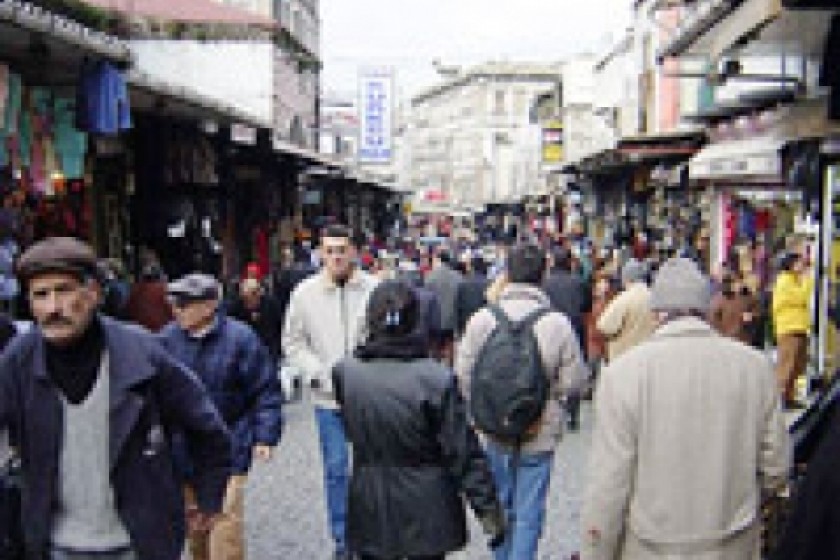
Armenians in Turkey
I met Artur a little while ago. He was delivering an order from a shoe factory to my husband’s family. I noticed him, since in
I was surprised by his age; this slight, good-looking boy was only twelve years old. He was outspoken and gave direct answers. We learned that Artur had come to
"Do you watch TV?" I ask him.
"As if I have time to lift my head up," he replies.
Artur already knows Turkish pretty well. As we spoke, he sometimes replied in Turkish when he couldn't remember the appropriate Armenian word. He lives in
"I make 100 million liras a week (about $75), my mother makes $100, and my sister makes 100 million lira, too."
Rents in
"Is it enough?" I ask.
"We manage to get by somehow; my sister doesn’t make enough money to support herself, and I eat during my breaks in the cafeteria-my boss pays for it."
Artur used to go to School #11 in Hrazdan.
I went till sixth grade but I didn't want to, I always skipped classes after one in the afternoon. The classes were from nine to six, and I didn't want to go to that school. One day my mother asked me if I wanted to go to her. I said, why not? And me and my sister came here. I have done whatever type of job there is here. Before this job, I worked for 50 million a week.
The boy doesn't want to return to
"I give it to my mother."
The factory owner has promised to increase his salary to 150 million lira.
"I don't like Turks or Kurds. I say whatever I want to the boss. I'm not afraid of anyone."
Artur proudly says that he is not afraid of the dark, and after work he goes to an Internet cafe to play games.
"The Armenian place is open till one a.m.-I go there."
In
"And your mother doesn't say anything?"
"I sneak out when they fall asleep. They don’t know."
"When you come back late, your mother doesn't scold you?"
"No," he says sharply.
His father is in
There are Armenian schools in
"I know everything; I can get into the game and change everything."
Artur is not the only person in this city, but he is one of the few, who is completely at the mercy of fate. He has no future in this country. He cannot start anything here, and even if he lives the rest of his life in this city, he will be unable to obtain any citizenship right, because he is a Christian, and especially because he is an Armenian.
"Sometimes I buy some small items for one million lira and sell them for three million, or when my boss gives me money to buy materials, I buy them for a bit cheaper, and save ten million, " he boasts.
It was getting late, so we asked the youngster to go home, since
Hermine Adamyan
 Videos
Videos Photos
Photos




Write a comment